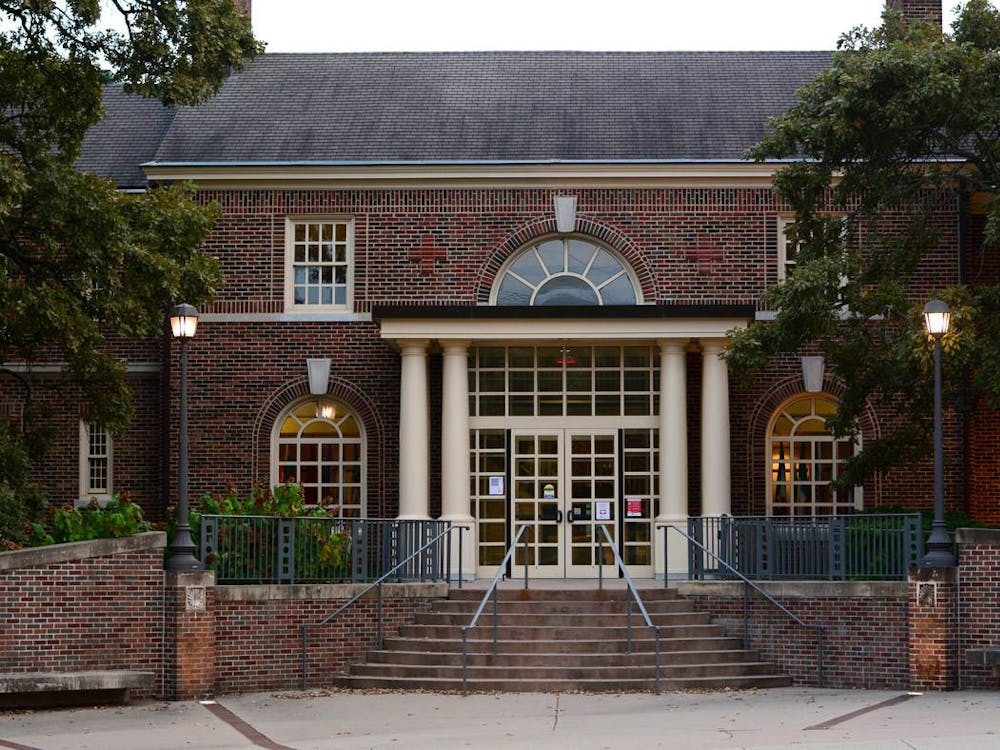By Angela Hatcher, Senior Staff Writer
According to the report, "Rising Tide II: Do Black Students Benefit as Grad Rates Increase?", released March 23, Miami University is ranked highly for its work in shrinking the gap between the graduation rates of its white and black students.
The report lists Miami in the top 10 under the category of "Top-gaining four-year public institutions for black students."
The report cites the university specifically for closing the gap between black and white students by 10.7 percent. Graduation rates for the years 2003-2013 for black students improved by 10.5 percent at Miami and the overall graduation improved by 0.4 percent.
Miami's graduation rates for the year of 2013 were at 71 percent for black students and 81 percent for the remainder of the graduating student body.
However, the 71 percent graduation rate for black students refers to the 3.65 percent of black or African-American students on campus, whereas the 81 percent graduation rate refers to the 80.75 percent of students on campus who are white.
"Diversity should be considered in different ways," said Jonika Moore-Diggs, senior associate director of admission and alumnus of Miami University, "We tend to think of diversity as black and white, or as just checking a box. We need to move away from that and celebrate all kinds of diversity."
Moore-Diggs also noted the statistic does not account for multi-racial students, a category that was intro duced in 2010 for those students who could not identify with a single race or ethnicity. The mixed race category accounts for 3.02 percent of all students on campus.
"By no means are we thinking, 'We've made it!' No," Moore-Diggs said. "We are, however, working diligently to make those gains on this campus and it shows an intentionality coming directly from our office and the entire university."
Susan Schaurer, assistant vice president for Enrollment Management and director of admissions, stated that, both in-state and out of state, Miami University is making a conscious effort to increase cultural diversity on campus.
Schaurer cited the Bridges program as one of the many admissions initiatives that has been a successful tool for cultivating diversity on campus.
Bridges is an overnight visit program for high school seniors who have a commitment to and appreciation for cultural diversity. It brings together students from diverse cultural and socioeconomic backgrounds to showcase the resources the campus has in place for diverse students.
Enjoy what you're reading?
Signup for our newsletter
At its inception in 2007, the program had only 44 participants. The Bridges program had over 600 participants this past year.
48 percent of all black students currently on campus participated in the Bridges program.
"Being able to increase enrollment and decrease the graduation gap is a huge feat for the university," said Schaurer. "We will continue on this path of intentionality to ensure we retain these students."
The current retention rate for black students on campus between their first and second year is 91.4 percent, compared to 90.3 percent for the entire student body.
"It was after these years that the retention rate is lower," said Schaurer. "But not lower than the average."
First-year Mona Mae Juwillie's concern lies in the "inclusivity" aspect of diversity.
"It's one thing to say that this university is all about 'inclusivity' and that 'inclusivity' is reflected in our institution's values," said Juwillie. "But inclusivity here feels intangible to me."
To make inclusivity tangible for students like Juwillie, the Office of Enrollment Management and Student Success was created to focus on student retention, especially regarding students of color.
The Bridges program is run through that office and was altered so that even once admitted, Bridges students feel they have mentors and an outlet built into the university to ensure their success and retention.
Moore-Diggs urges students to take a more active role in the pursuit of their own success on campus.
"Don't expect things to come to you. Seek out resources, no matter who you're with or who you're reaching out to," said Moore-Diggs. "Reach out. There are resources here. We hear you."




